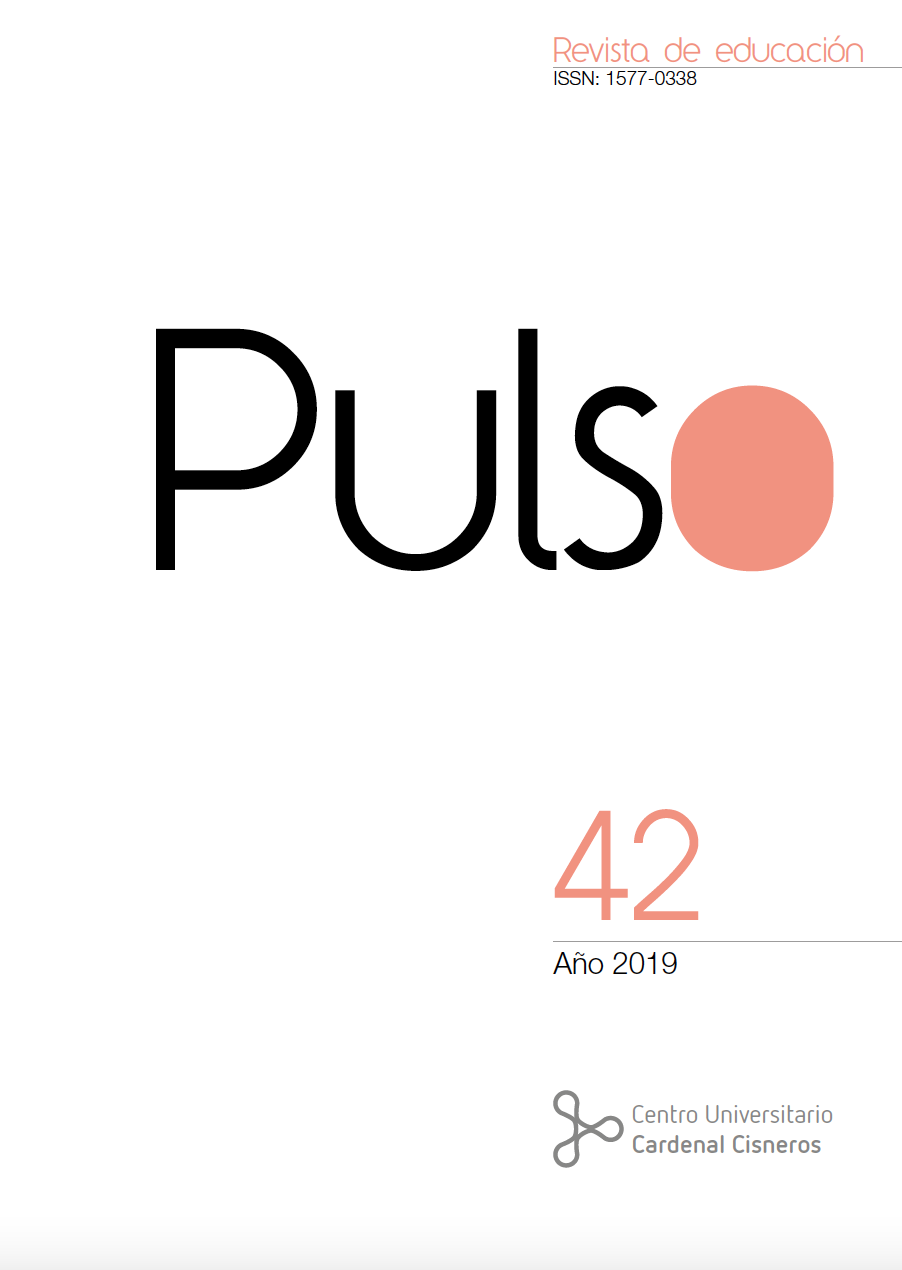Campus Volvo: an innovation proposal to incorporate the city to the educating process
DOI:
https://doi.org/10.58265/pulso.4868Keywords:
Educating Cities, Expanded Education, Non-Formal Education, Project-Based LearningAbstract
The Project “Campus Volvo” pursues to incorporate the city to the learning process, considering it an ‘educating city’. In this regard, an innovative proposal was developed to connect formal education with the multiple resources any city harnesses. It is an expanded education proposal based on projectbased learning and sustained by action-research, all framed within the topic of sailing regattas. The present article is structured in two interconnected parts. On the one hand, a theoretical reflection which serves as the state of the art of the topic. Then, there is a description of the pilot experience in full detail and an analysis of the results with the aim of establishing proposals which may improve future actions. The results show that this experience has a positive impact on the students’ meaningful learning.
Downloads
References
Badalamenti, J. (2016). Four essentials of a successful Genius Hour. eSchool News. Recuperado de https://www.laduefoundation.org/news/2016/12/27/the-four-essentialsof-a-successful-genius-hour
Blanco, A. Y Chueca, A. (2016). Informe España 2016. Madrid: Universidad Pontificia Comillas.
Declaración de Barcelona (1990). Carta de ciudades educadoras. Recuperado de http://www.edcities.org/wpcontent/uploads/2013/10/CARTA-CIUDADESEDUCADORAS_3idiomas.pdf
Díaz, R., Freire, J., Lamb, B., Martín, J., Lafuente, A., Wesch, M., y De la Torre, A. (2012). Educación expandida. Sevilla: Zemos98.
Elliot, J. (1991). La investigación-acción en educación. Madrid: Morata.
Fernández, E. y Anguita, R. (2015). Aprendizajes invisibles en contextos de educación expandida. Retos y oportunidades en la sociedad hiperconectada. Profesorado. Revista de Currículum y Formación de Profesorado, 19(2), 1-16.
Freire, J. (2012). Educación expandida y nuevas instituciones: ¿Es posible la transformación? En R. Díaz y J. Freire. Educación Expandida. Sevilla: Zemos98.
Igelmo Zaldívar, J. (2012). De la pedagogía crítica a la crítica de la pedagogía: las instituciones educativas modernas en el contexto de la web 2.0. En R. Díaz y J. Freire. Educación Expandida. Sevilla: Zemos98.
Kydd, G. S. (2004). Seeing the world in 3D: Learning in the community. Calgary: University of Calgary.
Martín Barbero, J. (2012). Ciudad educativa: de una sociedad con sistema educativo a una sociedad de saberes compartidos. En R. Díaz y J. Freire. Educación Expandida. Sevilla: Zemos98.
Martínez-Celorrio, X. (2016). Innovación y reestructuración educativa en España: las escuelas del nuevo siglo. En A. Blanco y A. Chueca. Informe España 2016. Madrid: Universidad Pontificia Comillas.
Open Minds Education Concept Guide (2008). Recuperado de: http://btcn.ca/wp-content/uploads/2010/07/OpenMinds_Handbook.pdf
Rodríguez Moneo, M. (2009) Motivar para aprender en situaciones académicas. En G. Romero y A. Caballero. La crisis de la escuela educadora. Barcelona: Laertes.
Reynolds, S., Carroll, M., & Welch, B. (2016). Engaging with our future: the role of educators, practitioners, professional associations and employing organisations in the co-creation of information professionals. The Australian Library Journal, 65(4), 317-327.
Stenhouse, L. (2007). Investigación y desarrollo del curriculum. Madrid: Morata.
Trujillo, F. (2015). Aprendizaje Basado en Proyectos. Infantil, Primaria y Secundaria. Madrid: Ministerio de Educación y Ciencia.
Yúdice, G. (2002). El recurso de la cultura. Barcelona: Gedisa.
Downloads
Published
How to Cite
Issue
Section
License
Copyright (c) 2022 Pulso. Revista de educación

This work is licensed under a Creative Commons Attribution-NonCommercial-NoDerivatives 3.0 Unported License.
This journal offers immediate open access to its content based on the idea that offering readers free access to research favours a global exchange of knowledge.
Papers are published in the electronic version of the journal under a Creative Commons License: Attribution-NonCommercial-No derivatives 4.0 International
Authors are allowed and encouraged to promote the post-print version (reviewed and accepted for publication version) of their work online before publishing them. This favours their earlier circulation and dissemination and thus a possible increase in their citation and reach among the academic community.














